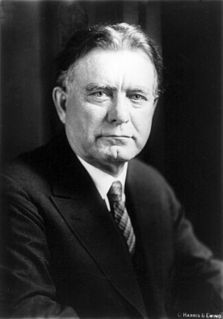A Quote by Karl Marx
The most violent, mean and malignant passions of the human breast, the Furies of private interest.
Related Quotes
In the domain of Political Economy, free scientific inquiry meets not merely the same enemies as in all other domains. The peculiar nature of the material it deals with, summons as foes into the field of battle the most violent, mean and malignant passions of the human breast, the Furies of private interest.
Each pursues his private interest and only his private interest; and thereby serves the private interests of all, the general interest, without willing it or knowing it. The real point is not that each individual's pursuit of his private interest promotes the totality of private interests, the general interest. One could just as well deduce from this abstract phrase that each individual reciprocally blocks the assertion of the others' interests, so that, instead of a general affirmation, this war of all against all produces a general negation.
When you begin to suggest that dissent, opposition, resistance, the only way to deal with it is not to listen to it and to engage in dialog with it, but basically to label it as anarchy and to repress it with the most violent, in the most violent means possible. I mean, that's essentially an element of neofascism. That's not about democracy.
There is nothing that dies so hard and rallies so often as intolerance. The vices and passions which it summons to its support are the most ruthless and the most persistent harbored in the human breast. They sometimes sleep but they never seem to die. Anything, any extraordinary situation, any unnecessary controversy, may light those fires again and plant in our republic that which has destroyed every republic which undertook to nurse it.
Thus, experience has ever shown, that education, as well as religion, aristocracy, as well as democracy and monarchy, are, singly, totally inadequate to the business of restraining the passions of men, of preserving a steady government, and protecting the lives, liberties, and properties of the people . . . . Religion, superstition, oaths, education, laws, all give way before passions, interest, and power, which can be resisted only by passions, interest, and power.
It is difficult to say which is the greatest evil--to have too violent passions, or to be wholly devoid of them. Controlled with firmness, guided by discretion, and hallowed by the imagination, the passions are the vivifiers and quickeners of our being. Without passion there can be no energy of character. Indeed, the passions are like fire, useful in a thousand ways, and dangerous only in one--through their excess.
There is in every breast a sensibility to marks of honor, of favor, of esteem, and of confidence, which, apart from all considerations of interest, is some pledge for grateful and benevolent returns. Ingratitude is a common topic of declamation against human nature; and it must be confessed, that instances of it are but too infrequent and flagrant both in public and in private life. But the universal and extreme indignation which it inspires, is itself a proof of the energy and prevalence of the contrary sentiment.






































